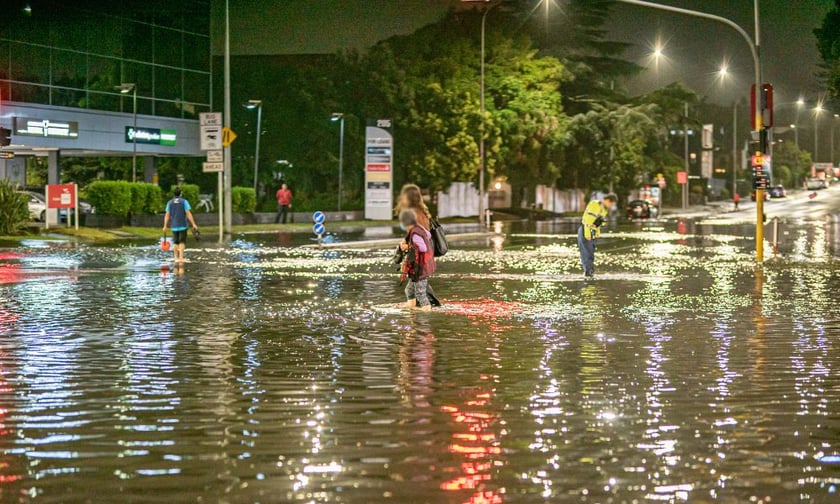

Recent flooding in Pahiatua has intensified concerns over New Zealand’s ability to manage extreme weather events, coinciding with the release of a critical report by the Climate Change Commission that highlights the country’s insufficient progress in climate adaptation.
Over the weekend, heavy rainfall in Pahiatua led to severe flooding, forcing the evacuation of several homes and drawing attention to the town’s stormwater infrastructure.
According to RNZ’s report, residents awoke early Sunday morning to find their homes inundated with floodwaters after intense rain overwhelmed the drainage systems.
Dallas McKinley, one of the affected residents, described waking up to find his lounge submerged, initially thinking it was a nightmare.
“I put my foot down, and it was just splash. I just thought I was having a nightmare or something. I walked out and it was shock. The whole lounge was flooded,” he told RNZ.
McKinley’s rental property was among those impacted, prompting evacuations as emergency services responded to the flooding.
While the Pahiatua Track, a key route connecting the town to Palmerston North, was cleared and reopened, 15 roads in the surrounding area remained closed on Monday.
The situation worsened when McKinley returned to his property on Monday, discovering that another night of heavy rain had led to further flooding. His driveway was blocked, leaving him unable to move his vehicle.
Despite assistance from neighbours, who lent him equipment to mitigate the damage, McKinley noted that much of his belongings were destroyed, compounded by the fact that he was uninsured.
Longtime resident Campbell Chalmers expressed frustration, stating that the flooding could have been avoided with better maintenance of the drainage system on Huxley Street.
“They haven’t kept the creek clean. If that creek had been cleaned, it might have dodged us,” he told RNZ.
Chalmers, who has lived in the area for 70 years, had to temporarily leave his home while dealing with insurance and repair issues. He argued that proper maintenance of the creek along his street might have prevented the flooding.
Belinda Lewer, another resident, reported that her aunt’s property, recently put up for sale, was removed from the market due to flood damage. She criticised the persistent drainage problems and said the family would seek accountability.
“We’ve had to take it off the market as it’s unsellable as it is right now until we’ve sorted out both insurances and the continual issues with the front drain that’s owned by the council,” she said.
Tararua District Mayor Tracey Collis addressed the community’s concerns, acknowledging the severity of the flooding. She noted that officials are investigating why certain areas were particularly affected and are reviewing the town’s response to the event.
“We had between 90 and 100 mL [of rain] at a really intense rate. The drains were up, nothing could cope at that stage,” she said, as reported by RNZ.
This local event coincides with the Climate Change Commission’s release of its first assessment of New Zealand’s national adaptation plan, which was introduced in 2022.
The report revealed that the country’s efforts to address climate change are not progressing at the necessary scale or speed.
Dr Rod Carr, chair of the commission, emphasised that climate change is making severe weather events like those in Pahiatua more frequent and intense, leading to rising economic and social costs.
“The impacts can be widespread and long lasting, and as they occur more frequently, the costs – economic and otherwise – will rise, too,” he said.
The commission’s report highlighted that New Zealand experienced nearly NZ$4 billion in insurance claims related to extreme weather during the 2022-2023 financial year. Major events like the Auckland Anniversary floods and Cyclone Gabrielle have resulted in damages estimated to be as high as NZ$14.5 billion.
The report calls for a more proactive approach to climate adaptation, including enabling local communities to plan effectively, clarifying the sharing of adaptation costs, and supporting iwi/Māori in their adaptation efforts.
The commission also recommends improvements in science, research, workforce development, and information sharing to enhance the national adaptation plan’s effectiveness.
A survey conducted alongside the commission’s report found that a significant portion of New Zealanders are increasingly concerned about the growing frequency and severity of climate-related events.
Many respondents indicated dissatisfaction with the government’s current response to climate change and called for more resources to mitigate climate risks.
